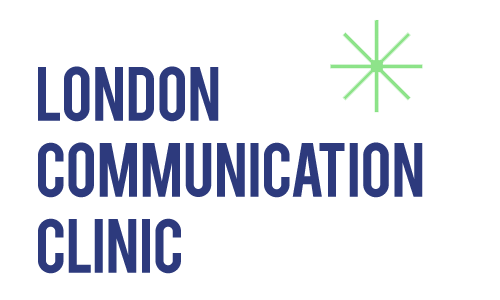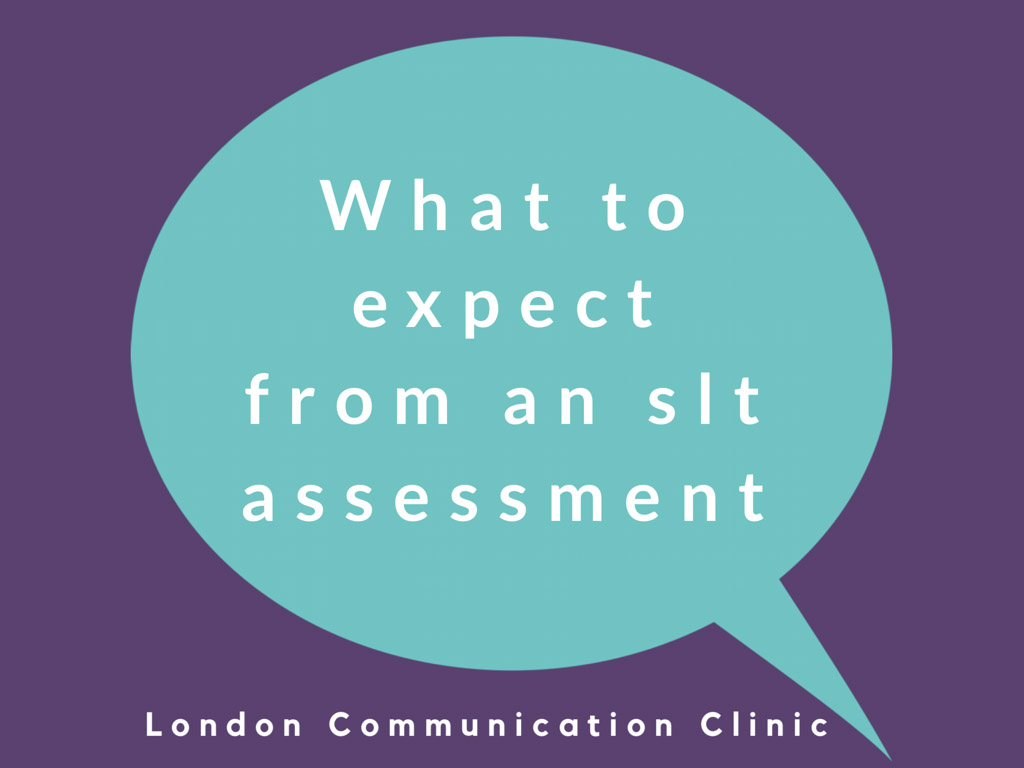As a parent the prospect of an initial appointment with an SLT may seem like a daunting prospect. To make the process as easy as possible we explain what happens.
Before the appointment:
Before your appointment, we like to speak to you on the phone to check that firstly your child definitely needs an assessment of their SLCN and to determine what level of assessment you may need. We will also discuss where the assessment should take place (your home, clinic or your child’s school). At London communication clinic we offer a range of assessment packages including screening, comprehensive and also very specific assessments for education health care plans or SEND tribunals. This is so as to provide you with what is most relevant and appropriate for you and your child.
Before your appointment, you will receive one or two questionnaires asking for detailed background information we will also ask you to share any other relevant reports. This background information gathering is important so we don’t ask you and your child to repeat things when we meet you face to face.
What to tell your child?
Depending on the age of your child parents may question what they should tell their child ahead of seeing the SLT. This is a very valid question and preparation is key! We work hard to make all activities. even an assessment, as enjoyable and interesting for your child, whether that is through stickers, a certificate or just talking about things they like, with this in mind there is nothing for your child to worry about as it isn’t a test. It’s usually worth telling your child the SLT is coming either to school/ home or why you are going to clinic. You can tell them the SLT’s name and show a picture, it’s also helpful to tell them the SLT sees lots of kids their age. Depending on your child you could tell them they are going to meet someone to have a chat and find out more about them, to play some games etc. If your child is aware of a particular difficulty sometimes it’s helpful to say that the appointment is to find out more about that and ways to help.
During the assessment:
The format of the assessment will change depending on the age of your child. Children communicate best about topics they are interested in so whatever your child’s age we will engage them in a way that is motivating to them. In addition to the background information gathered through a questionnaire, we will also want to ask you some questions relating to your child’s early development. Getting your views and thoughts is the most important part of the process!
If your child is pre-school age the assessment will be very play based. Although we will just be playing the SLT will be making lots of observations and recording them.
We might use standardised assessments such as the Clinical Evaluation of language fundamentals (pre-school version or the Clinical Evaluation of language Fundamentals (5th version). These usually involve looking at pictures and responding by saying a word or pointing. Standardised or formal assessment tasks can be very helpful to look in depth at language skills; they also give a score which can be used as a baseline or compared to the average for their age.
A lot of information can be gathered from playing games and just chatting about interests and school.
What areas are assessed?
Speech and language therapy is about a lot more than just talking! The assessment will likely consider the following areas:
- Attention and listening - how your child listens and attends to spoken language and activities of their choice
- Receptive language skills - understanding of spoken language including instructions, concepts, vocabulary, grammar
- Expressive language skills - how your child communicate in terms of words/ phrases/ sentences
- Speech sounds - the sounds that your child produces as part of words
- Fluency or stammering
- Play skills - how your child engages with toys and the type and variety of play activities they enjoy
Social communication and interaction skills - in young children sociocognitive skills such as joint attention, social responsiveness, shared enjoyment are fundamental parts of early communication. As a result of this, they are important elements to look at as part of an SLT assessment. As children get older we look at how they use their language skills in social interactions such as conversational skills, taking turns, understanding emotions and perspectives of others
Speech and language therapists also work with children with eating and drinking difficulties so this may also be considered.
After the assessment
Following the assessment, we will give you verbal feedback regarding your child’s areas of strength and needs. We will discuss next steps with you and agree a plan of input. We will also provide you with a written report within 2 weeks of your assessment.
If you do have concerns about your child please feel free to get in touch for a discussion.


